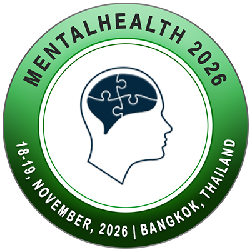This session focuses on the legal and ethical complexities of clinical research involving vulnerable groups, with particular attention to individuals with intellectual and developmental disabilities (IDD). It underscores the importance of protecting participant dignity, autonomy, and fundamental rights, while fostering inclusive and fair research practices. The discussion will cover ethical requirements related to informed consent and assent, strengthened safeguards for participant protection, and rights-based frameworks that enable meaningful engagement in research. In addition, the session will examine the relevance of international legal frameworks, including the United Nations Convention on the Rights of Persons with Disabilities (UNCRPD), and consider their impact on research planning, ethical review, and implementation processes.
Scientific Highlights
- Mental Health
- Women’s Mental Health
- Psychology and Psychiatry
- Autism
- Stress, Anxiety and Depression
- Psychotherapy and Counseling Psychology
- Behavioral Health and Bullying
- Suicide and Self Harm
- Bipolar Disorder
- Schizophrenia
- Neurology and Neurological Disorder
- Addiction
- Obesity and Eating Disorder
- Child and Adolescent Psychiatry
- Obsessive Compulsive disorder
- Post-Traumatic Stress Disorder
- Personality Disorder
- Child Abuse
- Legal and Ethical Issues in Clinical Research


